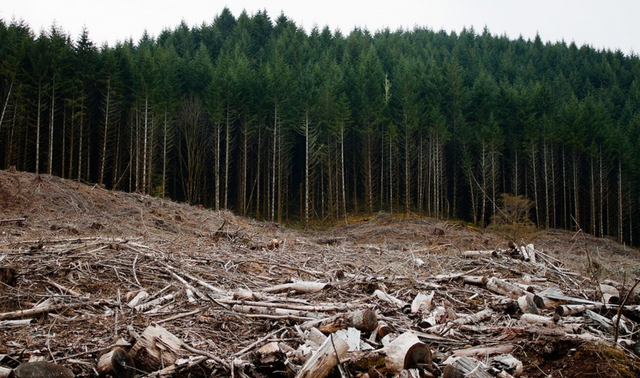Culture of Consumption Capitalism in the Global Ecosystem
In this brief essay, I will discuss the political economy of capitalism (definition, circuit, principles, the effective control and distribution of critical resources, the manifestation of political and objective powers). I will discuss the impact this Culture of Consumption has on the global ecosystem. I argue that the Culture of Consumption, as continued, will destroy the global ecosystem.
Capitalism is the political economy that maximizes profit through increasingly individualized and cyclical circuit of consumption. The essence of capitalism is its circuit, which is a cycle of capital to invest for growth. This growth speculates that we all consume raw materials, granted it is there to consume. The growth is dependent on increased production, increased labor and increased extraction of raw materials. Capitalism observes no natural limits in the accumulation of money that goes beyond human needs.

There are ten principles of capitalism that maintain consumption.
1: Perpetual Growth is the circuit of escalating consumption. This can be seen in most human transactions, but specifically in our financial markets—the buying or selling of commodities and stocks.
2: The Creation of Need is seen as the 'golden arrow of consumption' (The Story of Stuff) where people are cultivated by their culture to consume more. Advertisings purpose is to create this need and to produce consumers. Advertisers use visual symbolism and emotional techniques to make viewers feel discontent and deficient without the proposed product. They translate the process of consumption into an erotic spectacle.
3: The Creation of Dissatisfaction is made up of planned and perceived obsolescence. Planned obsolescence is the practice of producers, consciously, making their products with a set lifespan favorable for profit. Perceived obsolescence is the perception of inadequacy or deficiency in products. The style of women's heals change year to year, back and forth creating planned and perceived obsolescence. Advertisers hope the consumer will buy that years style, knowing that next year it will be changed.
4: Externalizing Cost is the radiating principle of capitalism, which removes costs to a third party that would accept it. This is the heart of our political economy—to maximize profit. Corporations effectively externalize cost to the public, through the creation of tax-deductible advertisements.
5: Quantifiable Economic Unit is a unit of transferability where all entities within the system become socialized through quantification. Everything in the system is made into a profit-generating entity within the circuit--including people. Enclosure Laws started the transition of the industrial system; where if you develop a resource you own it. Effectively shifting public resources into privatized resources.
6: Amorality is to lack the concept of right and wrong—deficient moral responsibility. Corporations are diagnosed psychopathic, through their traits of dishonesty and incapacity to feel guilt.
7: Aggression is a competition where only the fit will survive. This creates a constant war of destruction. Starbucks Corporation strategically places multiple locations around a competitor in an effort to destroy that competitor and increase profit.
8: Scarcity is the manufactured perception to control market prices. Diamond prices are controlled directly from this principle when the distribution of supplies are reserved to sustain high profit.
9: Unemployment is effectively a reserve workforce used to control wages of laborers. People are forced to accept their wages due to the fact others are willing to replace them in the position.
10: Standardization, or what capitalists like to call "harmonization", is the production of all aspects of the system to be the same, which creates a larger context, favorable for maximizing profit. This is seen through globalization, and membership of third world countries through 'capitalistic reform', a term capitalists do not like.
The Culture of Consumption is when the accumulation for capitalists, more wages for laborers, and more goods for consumers are promoted by the culture. This has been designated now as the Culture of Consumption through the undeniable cultural influence it has on humanity. The Culture of Consumption is not solely participated by corporations, but individuals as well. The evolution of this culture has been directed by the elite, who are the segment of our population that effectively control critical resources.
The political economy of capitalism is ultimately to maximize profit. Legally, corporations must maximize profit for shareholders or investors, regardless of effects to the public or environment. Corporations were originally chartered companies of the state, when operating power and time restraints are specifically dictated, creating relative power. With the 14th Amendment, corporations gained precedence that they are ‘people’, and in accordance, the government serves the corporation because of their human designations. This is when relative power of the corporation turned into unrestricted absolute power. These laws and principles evolved from the manifestation of the Agrarian State through Circumscription Theory and our economic organization. Circumscription Theory lists that the conditions that a state arises are from high population density, storable food—leading to war, and the population being not mobile or circumscribed. Our Nation State displays all of these dependencies. This creates a layered distribution of resources.

Our political economy distributes resources based on cash, not need, to participants. Accordingly, new elements of power arise. The government or king’s office is given both political and objective power. Political power is the ability to enact and enforce laws. Objective power is the effective control of critical resources. During the Agrarian State the king’s office held both; today our government holds political power and corporations hold objective power, as they control the critical resources through the principles and cycle of capitalism. Our Nation State is an elite mandated evolution of the Agrarian State. The responsibility of the Nation State is to provide defense, public works, conflict resolution and risk management. The creation of a standing army is to protect the people that include corporations. Today our world conflict and social unrest are due to the application of our ‘attacking’ defense to secure resources, which are then handled accordingly by corporations—stemmed from capitalism.
Public Works provide public utilities, roads, and public civic projects. These responsibilities were initially chartered companies with relative power or with a time restraint, now with rights of incorporation the power is turned absolute or without a time restraint—commercialized.
Conflict Resolution is the creation and enactment of our laws. These laws have been designed to serve the elite because they have absolute power over critical resources—and because they are effectually people too.
Risk Management is the access to resources under permission. Permission is determined by money. If you participate in the political economy you get money, in turn ‘your share’ of resources are granted.
Our economic organization is called the market exchange. This is an individualized exchange of money, resources and services. Our market exchange follows the principles of capitalism. The elite of the market exchange—corporations—set a precedence of success, through a game of follow the leader. This success is paralleled with our own views of affluence and its appeal. Corporations are given human and civil rights but lack accountability and awareness of actions. The repercussion from the government is in the forms of fines that becomes legally reduced to a business decision of maximizing profits. They have no soul to save, and no body to incarcerate.
The impact of the culture of capitalism on the global ecosystem is devastating because it is unobserved by capitalism. Corporations only think in increments of three months, when their quarterly statements come out. The overall trend to increase Gross Domestic Product (GDP) scales with carbon dioxide emissions, which perpetuates global warming. GDP gains create the over consumption of raw materials, overshooting the natural regeneration of nature. These gains have eliminated forests, specifically in the Pacific Northwest and South America. Not only did this create a need for high energy cost synthetic fibers, but eliminated a primary carbon reducing element of the ecosystem. The trees were used to fuel the urbanization boom of the 1950’s to accommodate the rapidly increasing population. To maintain the increasing population, which favors capitalism, all elements of the circuit are increased—specifically food systems. The intensification of food systems create diminishing returns for an exponentially increasing population, a derivative of the Malthusian Dilemma. The Malthusian Dilemma states that limits of subsistence production are not defined and a time will never come when people accept they can no longer make additions to it. Commercial factory food systems have turned into converting oil into food.
The culture of capitalism does not recognize the natural resources of the ecosystem as finite in the endless pursuit for more. The cultures perpetual cycle of extracting resources translates into more waste, involving chemicals, fertilizers, and dioxin which are all detrimental to the environment. The forever increasing system of diminishing returns, reliant on a finite resource will not be forever.
Capitalism, its principles, influence on culture and our political economy will destroy the ecosystem. Capitalism jumps from one resource to the next. Consuming to maximum depletion only to find a new one to drain. The system dictates that the infinite cycle will eliminate every natural resource on the planet. Maximizing profit as the motivation behind human action is required to shift for humanity to continue its existence. Corporations are now ironically in the best position to provide the necessary changes to create a sustainable environment.
✅ @pidgey, I gave you an upvote on your first post! Please give me a follow and I will give you a follow in return!
Please also take a moment to read this post regarding bad behavior on Steemit.
Thank you bot!